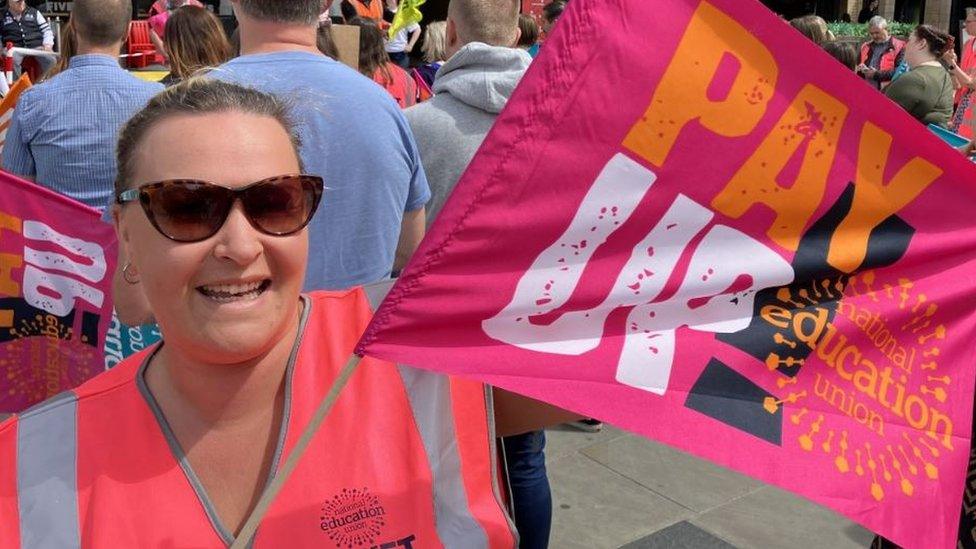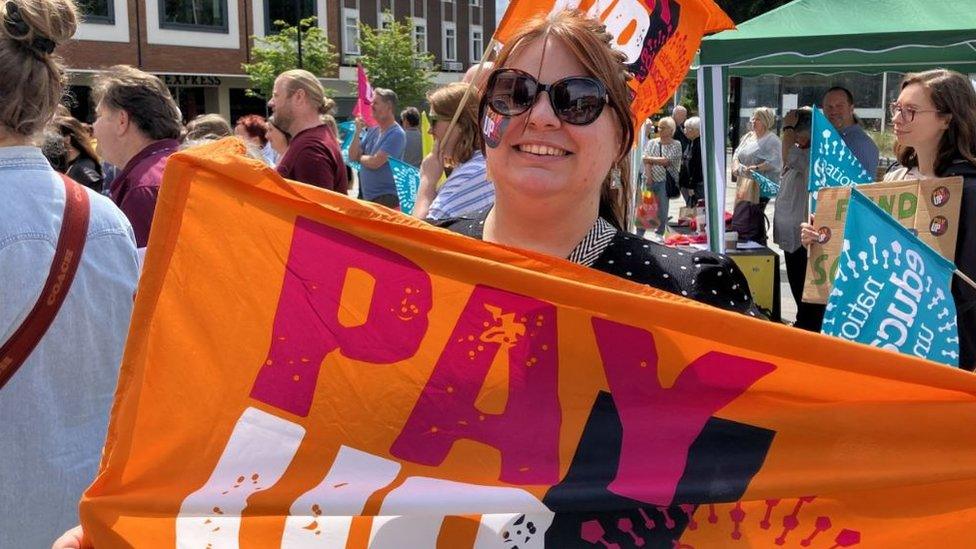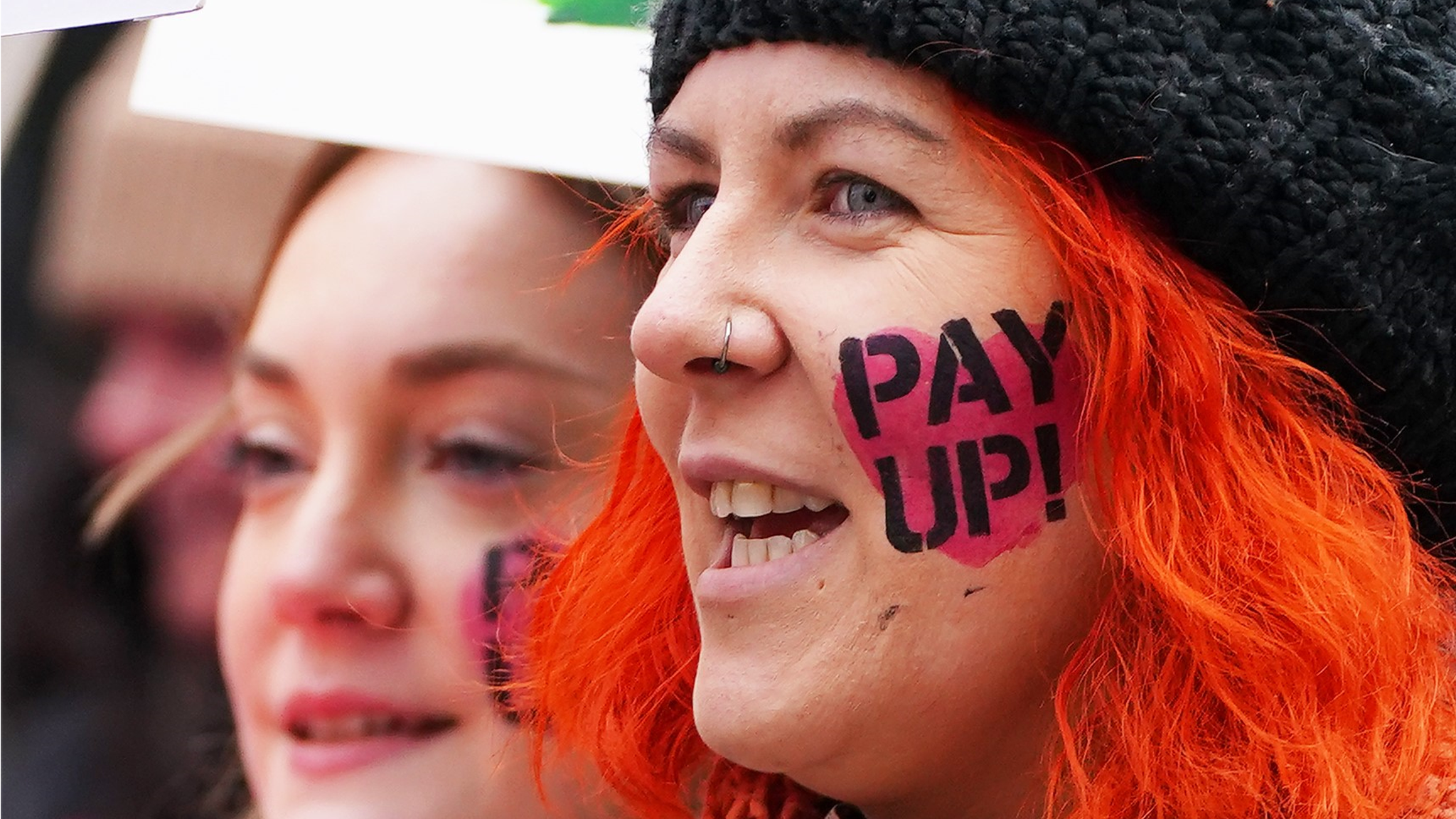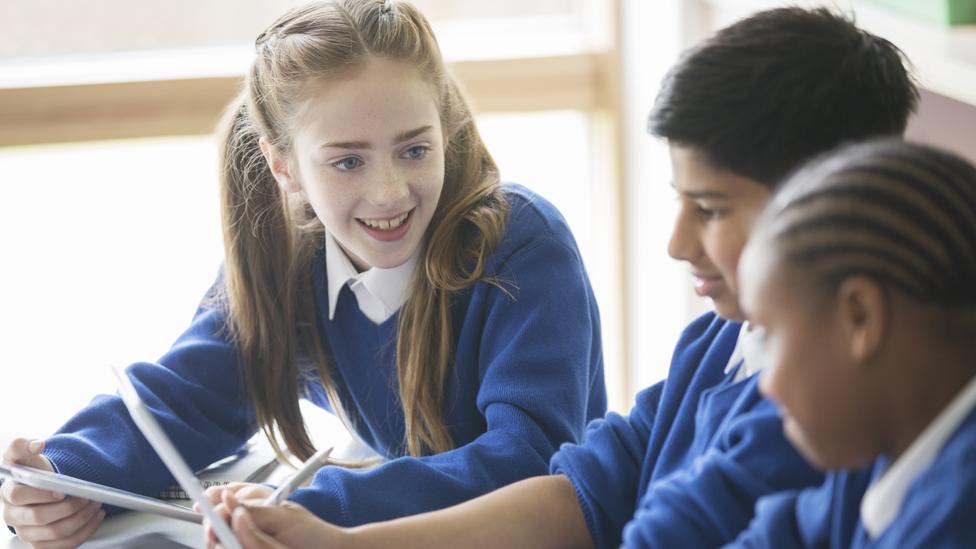Teachers' strikes: Worcester schools 'unable to afford exercise books'
- Published

Georgie Ballard, a teacher for eight years, said cuts and job pressures had left her stressed
Teachers have described schools being unable to afford exercise books as they took part in a sixth national strike.
Staff from the National Education Union (NEU) gathered at a rally at Worcester's Cathedral Square.
Primary school teacher Georgie Ballard, from Kidderminster, was among them and said: "People don't realise how stretched we are."
The government has offered a 4.3% pay increase this year, which has been rejected by the NEU and other unions.
The Department for Education said significant investment would bring school funding to its highest level in history next year.
Against a backdrop of chants, Year 3 teacher Ms Ballard said cuts and cost increases had left it "impossible to do a good job".
"At one point we had five glue sticks per 30 children. We don't have enough money to print, so we can't print resources for them," she said.
She described teachers leaving the profession in "droves", and not sleeping due to stress.
Nearly one in five teachers who qualified in 2020 have since quit, according to government figures.

Secondary school teacher Maisie Truman said staff were paying for resources and pupil trips because of depleted school budget
Maisie Truman, who teaches maths, said staff at her school had been warned to be "careful" since the cost of exercise books had doubled during the cost-of-living crisis.
She explained her class would expand to 33 pupils in September.
"I would even say in a class of 32, not all of those children get as much support and attention from me as they deserve," she said.
Worcestershire NEU joint branch secretary Sean McCauley said the government had forced the walkout after failing to publish a report that recommended a 6.5% pay increase, external.
"They won't negotiate, they won't sit down and they won't publish the report," he said, predicting further strikes in September.
The DfE said: "Schools are receiving significant additional funding as part of the extra £2bn of investment we are providing for both 2023-24 and 2024-25, which will take school funding to its highest level in history next year, as measured by the Institute for Fiscal Studies."

Follow BBC West Midlands on Facebook, external, Twitter, external and Instagram, external. Send your story ideas to: newsonline.westmidlands@bbc.co.uk, external
Related topics
- Published5 July 2023

- Published15 April
